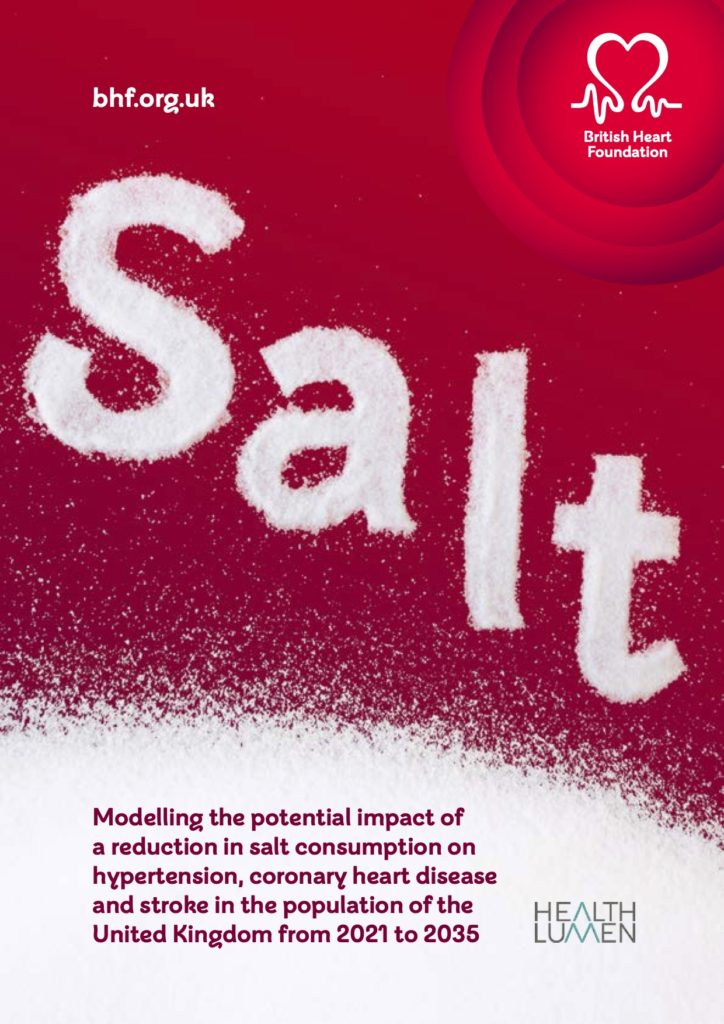
Modelling the potential impact of a reduction in salt consumption on hypertension, coronary heart disease and stroke in the population of the United Kingdom from 2021 to 2035
Poor diet contributes to the high prevalence of hypertension, obesity and non-communicable diseases (NCDs), such as cardiovascular diseases, cancers and diabetes, in Europe. In particular, high levels of salt consumption are harmful to the cardiovascular system. Therefore, a comprehensive strategy to improve diet, including reducing the levels of salt consumption is widely recognised as a strategy to improve health at a population level.
For this study, the British Heart Foundation commissioned HealthLumen to develop a microsimulation model to quantify the significant health and economic benefits that could be achieved by 2035 if UK adult salt consumption was reduced to 6g per day, as per current recommendations, by 2024 and 5g per day by 2030, in line with the WHO target.
Results show that a reduction in salt consumption could attenuate the health and economic burden of hypertension, CHD and stroke. Under the intervention (salt reduction) scenario, we project that 1.4 million fewer people will be living with hypertension in 2035 compared to the baseline scenario. We project that 134,789 cumulative incidences of CHD and 48,540 cumulative incidences of stroke could be avoided by 2035. We project that these reductions will incur direct cost savings of £6.70 billion and indirect cost savings of £4.70 billion between 2021 and 2035.
Given the health and economic benefits that would be generated by a reduction in daily salt consumption, UK Government action that seeks to enforce the national salt reduction policy outlined in this report would contribute significantly to the 2019 NHS target of preventing “up to 150,000 heart attacks, strokes and dementia cases over the next 10 years.”
View blog post